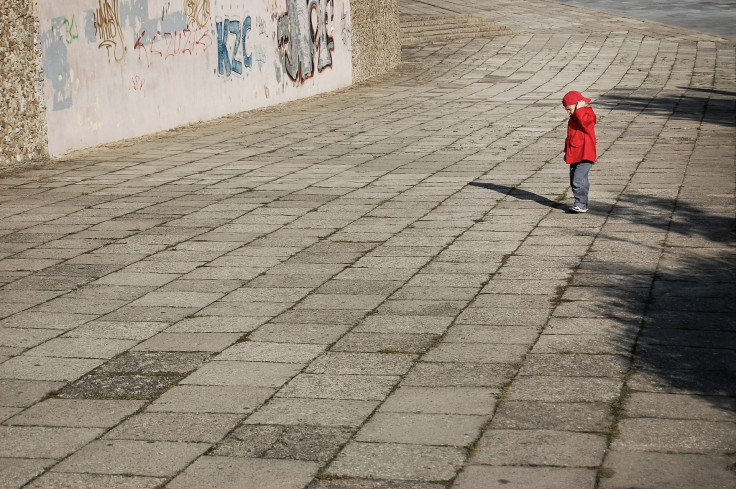Being Lonely Might Be Keeping You Awake At Night

If you’ve ever been stuck solo at a table full of couples, got FOMO from Facebook, or lacked social support, then you’ve definitely experienced loneliness. That feeling of void not only weighs heavy on your emotions, but can also take its toll on your sleep habits, according to a study published this week.
Read: This Part Of Your Brain Could Be Why You Have No Chill About The Future
Scientists at King's College London studied the sleep habits of 2,200 British twins to determine whether loneliness, defined as distress caused by inadequate social relationships, kept them awake at night. It’s important to note that loneliness isn’t caused by being single or sitting home on a Friday night. You can have a huge squad and still feel lonely, or be socially isolated and be perfectly content.
The team found that people who reported being lonely were 24 percent more likely to feel unrested and have trouble concentrating.
In the longitudinal study, meaning the participants (all born between 1994-1995) were evaluated at different points in their lives, each sibling answered questions about isolation, companionship, and feeling left out through in-home interviews and questionnaires. Sleep quality was also measured, including how long it took people to fall asleep, disturbance and how many hours were logged each night.
“Diminished sleep quality is one of the many ways in which loneliness gets ‘under the skin’, and our findings underscore the importance of early intervention to reduce loneliness in young people, which may be the starting point for a cascade of physical health problems in later life,” the authors write in the paper.
Researchers theorize that lonely people might feel less safe, resulting in those sleepless nights. They reviewed subjects’ past exposure to violence, including sexual-and child abuse, and found that twins who experienced the most severe forms of violence were 70 more likely to have sleep problems. The team also notes that many of the participants were away studying at college, which could definitely make young adults feel less safe and nurtured.
If you feel lonely right now, you’re probably not alone. A Harris Poll conducted last year revealed that three-quarters of Americans have felt lonely. Of course it’s impossible not to, but one-third also claimed experiencing the emotion at least once a week, reports CBS.
Previous research has shown that people who feel discriminated against are often lonely. So, women tend to be lonelier than men, those with less education are lonelier than the highly educated, and unemployed and retired folks are lonelier than workers, according to the New Republic.
Read: Can't Sleep? 6 Myths About Sleeping You Probably Believe
It would be almost impossible to never feel lonely, and a study last year indicates some of us might just be born that way. Researchers from the University of Chicago found that there’s actually a genetic risk for loneliness. It may seem like a small thing to suffer from, but loneliness can boost your level of stress hormones and impair cognitive functioning. Combating these feelings may take time, but you don’t need to cultivate 30 close friendships to feel better.
“If [a lonely person] is able make one more friend, the loneliness starts to diminish,” Jacqueline Olds, MD, co-author of The Lonely American, told Everyday Health. “All sorts of scary things become possible when you have a friend to do them with.”
See Also:
Energy Drinks And Alcohol Make You More Drunk, But Only In Your Mind
Why Writing Your Feelings In A Journal Isn't Always Good For You



























